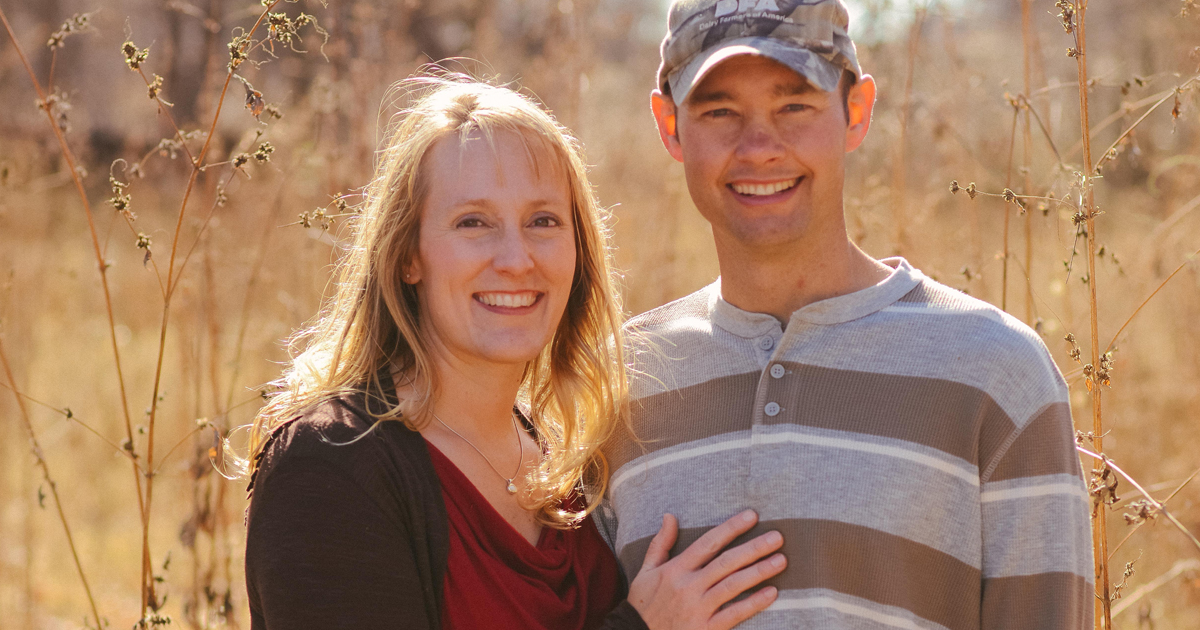
Of all the titles we may foresee in our future—child, spouse, parent, professional—almost nobody imagines caregiver on the list. But when loved ones are diagnosed with cancer, those closest to them are typically counted on to fill the part. The caregiver is an integral member of a cancer patient’s care team, yet the assignment comes without a job description, an instruction manual or a set schedule, and the majority of those who assume the role have no prior experience. A caregiver often wears multiple hats and may be tasked with tending to an array of medical, emotional and domestic needs, while also handling responsibilities like coordinating and attending doctor appointments and treatments or filling out and filing insurance paperwork. It’s no surprise that caregiver fatigue, burnout and guilt are very real concerns, and anyone embarking on the journey should be aware of what may lie ahead.
Just as every patient’s cancer is unique, so are the physical and psychological side effects of dealing with the disease. But certain feelings and challenges are universal, particularly for caregivers.
“ Cancer is a traumatic event for the entire family, not just the patient. It’s not like the flu, where you see an end point. The most common feelings we see among caregivers are feelings of helplessness, anger, frustration, grief, guilt, anxiety, worry and loneliness,” says Alexandria Callahan, LCPC, BC-DMT, GLCMA, Mind-Body Therapist at our Chicago hospital
Caregivers very often become so focused on the patient’s needs that they neglect their own. Experts say this is the most common, and most concerning, mistake caregivers can make. “Caregivers need to make sure they’re eating, getting enough sleep and keeping up with their own medical appointments, because they can’t help anyone if they’re not well,” Callahan says. “It’s the same as an emergency on an airplane—when the oxygen mask comes down, you’re supposed to put your mask on first. As caregivers, we jump at every single thing the patient needs and forget about ourselves. It’s easier to focus externally than internally. It’s cliché, but I tell people all the time to take a deep breath. It engages the diaphragm and forces you to focus on your breath and relaxes your body. You can take 30 seconds out of this crazy day and breathe while you’re waiting for water to boil or you’re at a red light or in the bathroom.”
She advises all caregivers to find a coping mechanism that works for them. If you find yourself harboring feelings of anger, for example, recognize it and learn how to process it, she suggests. Also realize that many patients take their frustrations out on their caregivers. If this happens to you, try not take it personally. “In that moment, ask the patient if there’s anything they need, and then just give them some space,” she says. “When the caregiver feels overwhelmed, it’s OK to take a break.”
When Kathleen Fincham’s husband, Mike, was diagnosed with stage IV colorectal cancer in 2013 at age 35, neither of them had any idea what to expect. The Finchams had five young children, including an infant, and Mike Fincham supported the family, working long hours on their dairy farm in northeast Kansas. Over the course of about two years, he underwent two surgeries, six months of chemotherapy and spent more than three months in the hospital. Kathleen Fincham found herself scrambling to take care of her husband while juggling motherhood and helping on the dairy farm. While the Finchams were fortunate to have lots of help from relatives and friends, Kathleen Fincham still experienced moments of feeling overwhelmed and fearful of an uncertain future with her husband. In her case, a strong faith bolstered her during dark times.
“I relied on my strong belief in the sovereignty of God and knowing that if this is the end of his life here on Earth, we’re not going to be able to control the circumstances and that’s not our job,” she recalls. “We told ourselves that we’re here for as long as God wants us here, and we had an eternal perspective. We were really at peace with that. Obviously, we hoped for more than that, and thankfully, it’s the way it turned out for us.”
She also found it helpful to carve out some time each day to recharge herself, by going for a run or reading her Bible. She was mindful not to be too hard on herself. “During Mike’s illness, I told myself it was OK if I wasn’t keeping up with everything like I did before,” she says. “I didn’t do quite as much home-schooling that year, and the kids are fine.”
Robert Bloom, MD, Psychiatrist in our Chicago hospital, echoes Kathleen Fincham’s sentiments, adding that it’s also constructive to forgive friends and relatives who may be oblivious to the physical and emotional toll caregiving takes. He and his wife, Judy, know firsthand the challenges of caring for an ailing loved one. The Blooms’ daughter, Rachel, who was born with spina bifida, lived with her parents until her death in 2016, a few months shy of her 36th birthday.
“The main thing I learned is that most people who aren’t in your shoes don’t understand how difficult it is,” says Dr. Bloom. “Caregiving is a 24/7 responsibility and can be very draining. Early on, I advise everyone of three rules: Don’t feel sorry for yourself, don’t put yourself down, and don’t compare yourself to others. Rather than judge, try to explain.”
For Judy Bloom, talking with other parents of children with disabilities helped her cope with her own situation. She found a support group when Rachel was a toddler, and decades later, those people remain some of her closest friends. “For me to get together with a group of friends with healthy 3-year-olds didn’t help me,” she says. “Find a group of likeminded people, either online or in person. I met so many people online who I never met in person, and we commiserated together and shared tips. Nobody understands this unless they’re in your shoes.”
Judy Bloom also saw a therapist to manage feelings of anger, depression, guilt and resentment, all common emotions for caregivers. And she learned how to ask for, and accept, help. “At first, it was easier to get mad at someone because they didn’t offer to help than to ask them to do something, like go to the grocery store or prepare a meal,” she says. “Most people would love to help someone if asked.”
Here are some other tips caregivers can follow to help ease the stress:
- Develop a support network, either online or in person. It’s valuable to talk with others who are similarly situated. If you cannot find a support group, ask a medical professional for recommendations.
- Be the patient’s advocate. Accompany your loved one to doctor appointments. Do research and ask questions the patient may not think of or is too afraid to ask. Be sure to take notes.
- Stay on top of your own physical and psychological health. Be mindful of your diet, and make time to exercise. You will feel better and have more energy if you’re healthy. If the patient is able, take a walk together or push him or her in a wheelchair. Chronic stress can affect physical health.
- Do things that aren’t part of your caregiving responsibilities—have lunch with a friend, see a movie or continue a hobby you enjoy, like painting or reading.
- Forgive yourself. You’re human and will have days when you’re short-tempered, grumpy, resentful or worn out. Let it go.
- Ask for help and accept help when offered. Most of us are uncomfortable with leaning on others, but your friends and loved ones likely want to do something—they just may not know what you need. Keep a mental list of necessities, such as meals, rides or someone to do the grocery shopping, sit with the patient while you take a break or watch your children for a few hours.
- Foster open communication with the patient that allows both of you to express anxieties and fears. Experts say patients and caregivers often get caught up in thinking they have to remain positive for the other person, but they find it’s cathartic for both parties to talk about their feelings.
- Engage in activities with the patient that are unrelated to cancer. Play cards or a board game or make popcorn and watch a favorite TV show.
- Turn to national resources for caregivers that may help along your journey. These include:
- American Cancer Society, National Cancer Information Center, 800-227-2345
- Caregiver Action Network, 202-454-3970
- Cancer Support Community, 888-793-9355



